Computer Olympiad 2011 Tilburg
Photos on Computer Go
Photos and Text by Ingo Althöfer

Winners in the 9x9 competition, from left to right:
Aja Huang (Bronze; for Fuego), Hideki Kato (Gold;
for Zen), Petr Baudis (Silver; with Pachi);
Prof. Jaap van den Herik (Tournament Director)
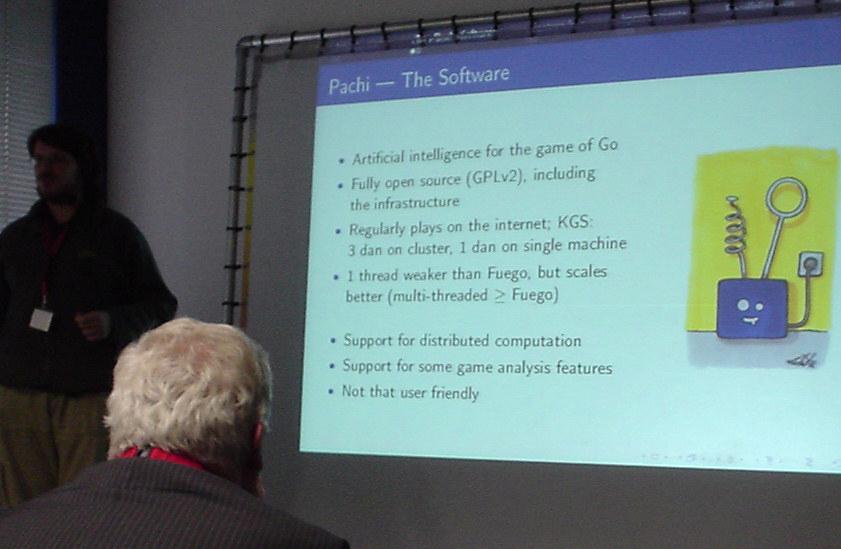
Talk on Pachi bot, given by its author Petr Baudis
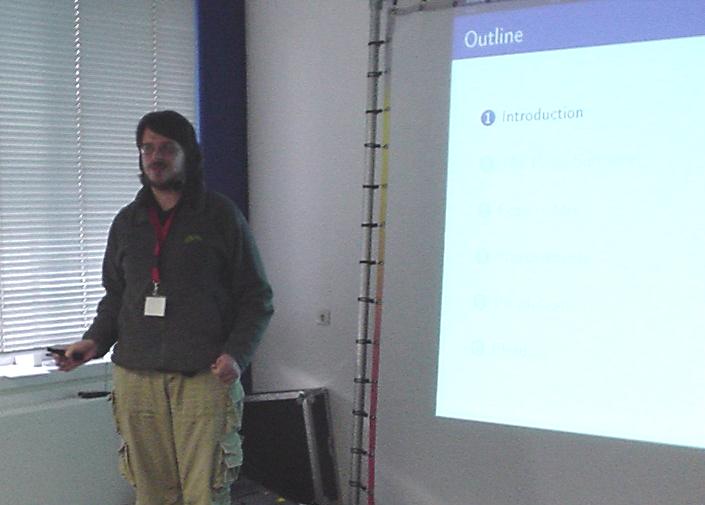
The speaker in better light: Petr Baudis
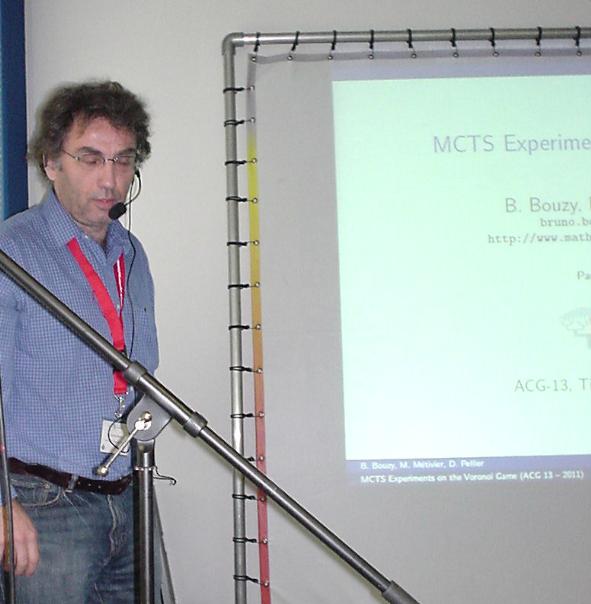
Another speaker: Bruno Bouzy, one of the pioneers of Monte Carlo Go
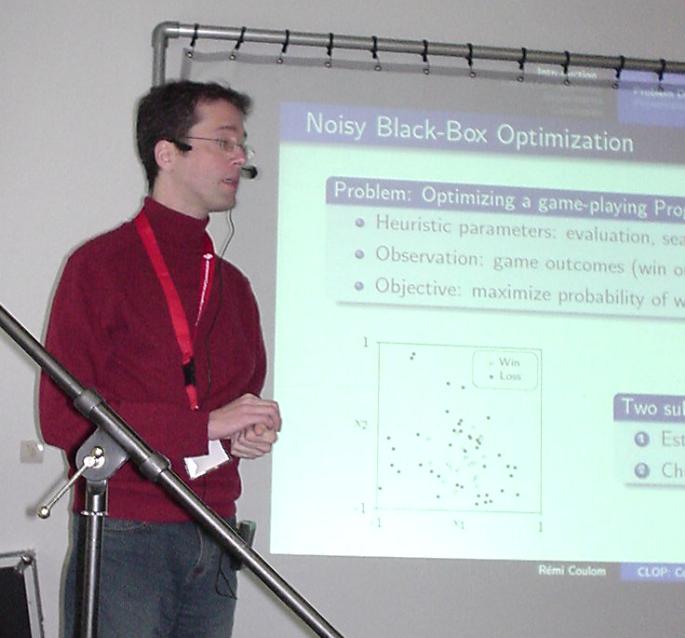
And Remi Coulom, author of the first successful MCTS Go bot
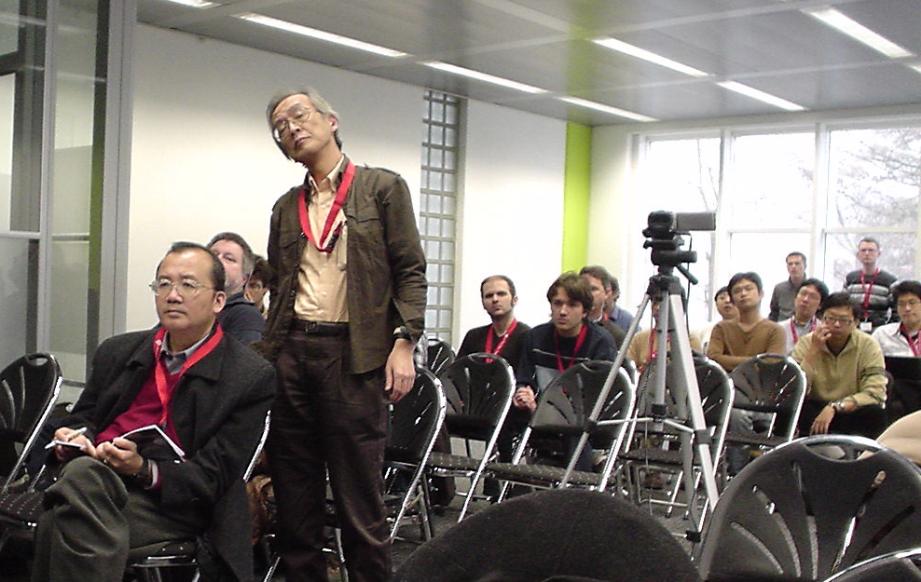
Hideki Kato (standing) asks a question;
left in front of him Prof. I-Chen Wu
(Taiwan), amongst others the inventor of the new classic "Connect6"
Now to the competitions on
13x13 and 19x19 boards
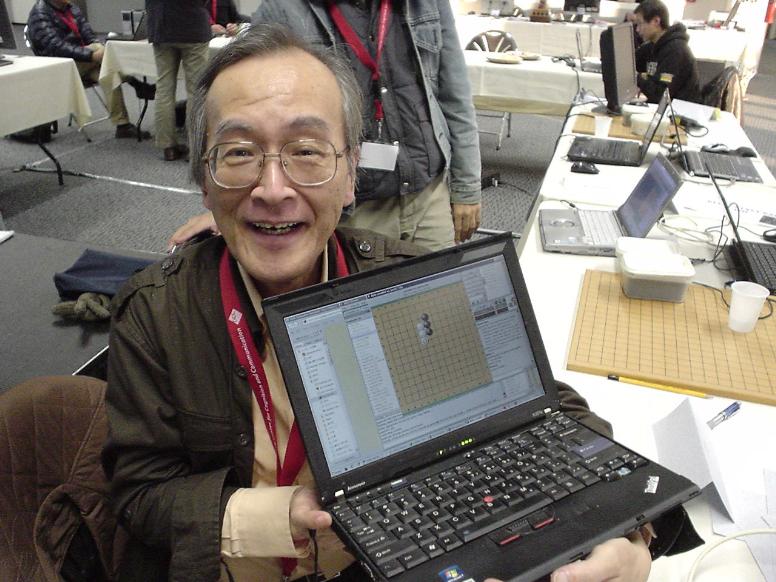
Hideki Kato (Zen team) was very surprised by one of the opening lines
played in the tournament
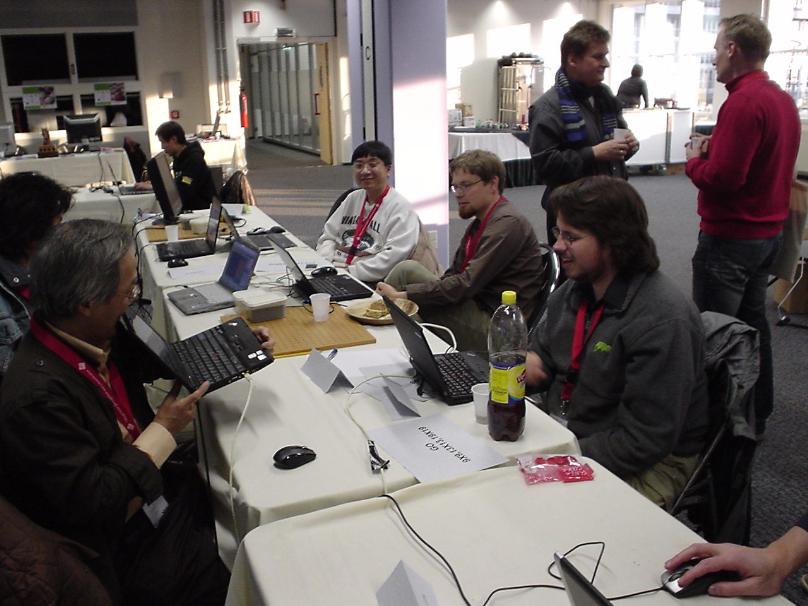
He shared the position with the other Go programmers and operators.
Standing in the right are Prof. Aske Plaat (co-organizer) with red
pullover and Prof. Ulf Lorenz (computer Chess senior)
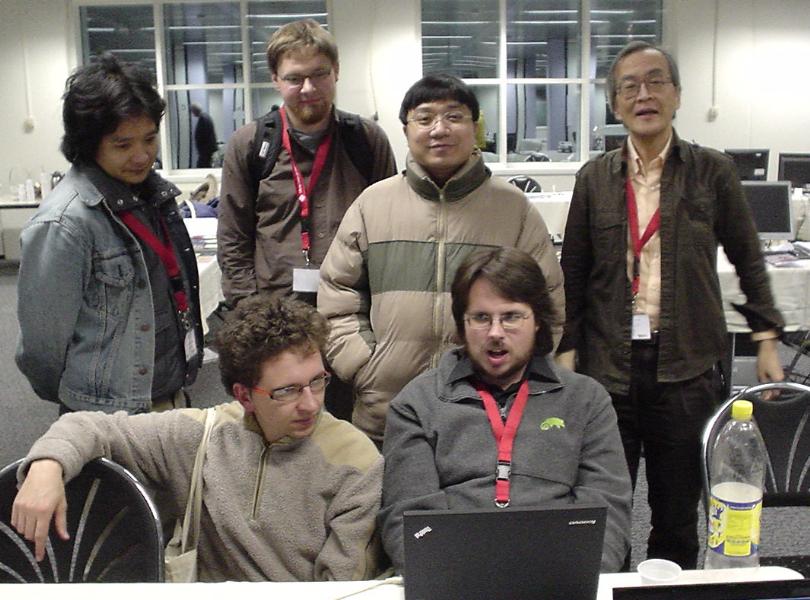
Go programmers. Sitting from left to right: Lukasz Lew and Petr Baudis.
Standing from left to right: Jun'ichi Hashimoto from Japan (Ph.D. student and
co-author of a 2011 paper on accelerated UCT search), Lars Schaefers (Gomorra),
Aja Huang, Hideki Kato.
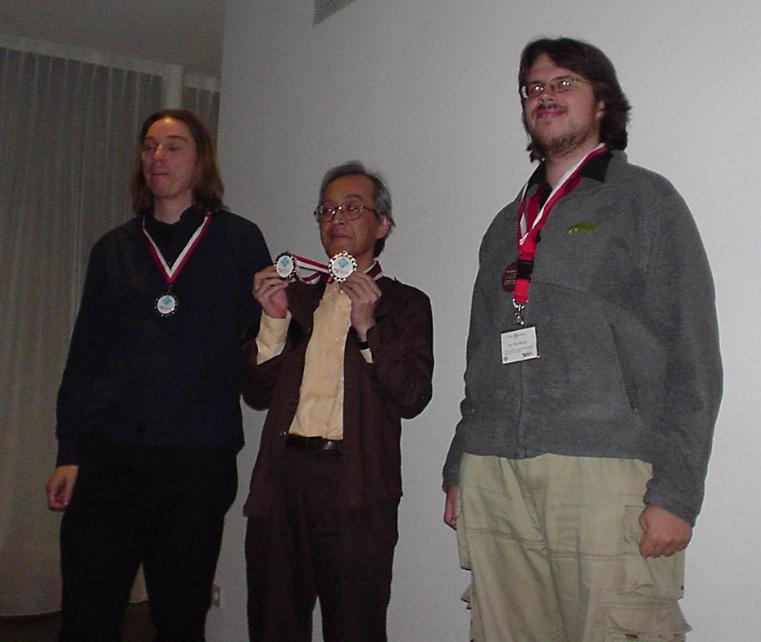
Medals for the 13x13 and 19x19 competitions; from left to right:
Erik van der Werf (2 x Silver with his Steenvreter),
Hideki Kato (2 x Gold), Petr Baudis (2 x Bronze)
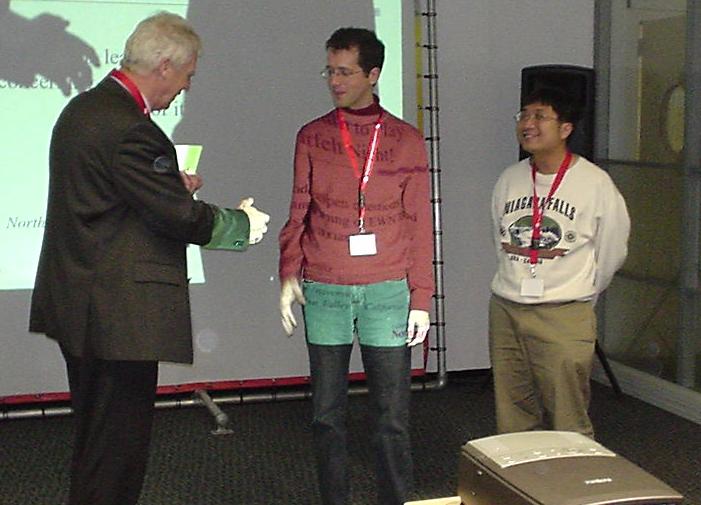
Awards for best papers were given by Jaap van der Herik to Remi
Coulom and Aja Huang
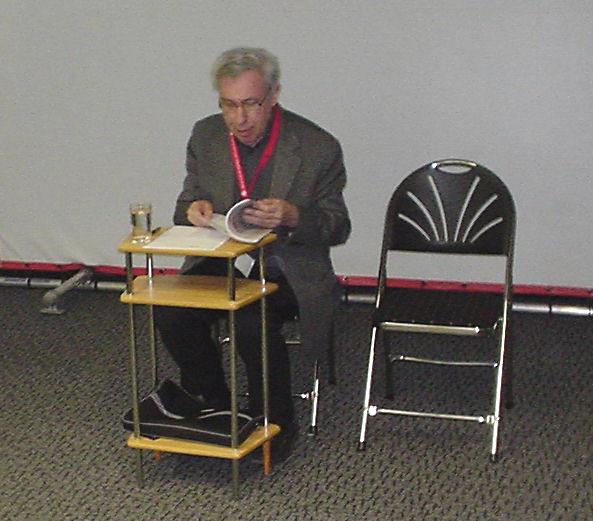
David Levy, president of the ICGA, modestly leading the triennial meeting
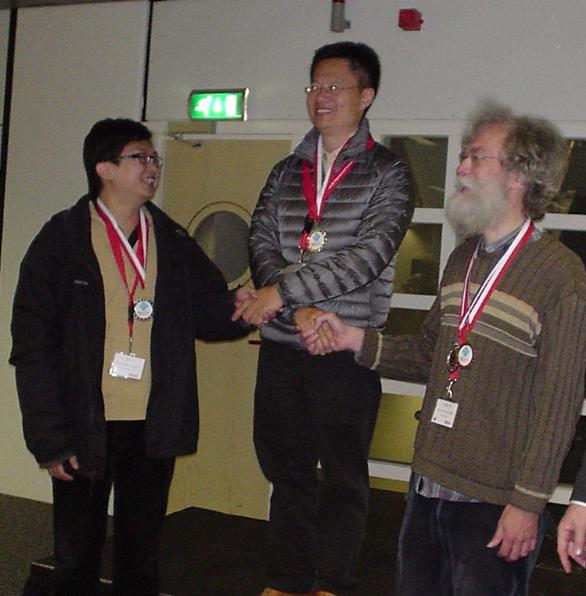
Top scorers in the variant "NoGo"
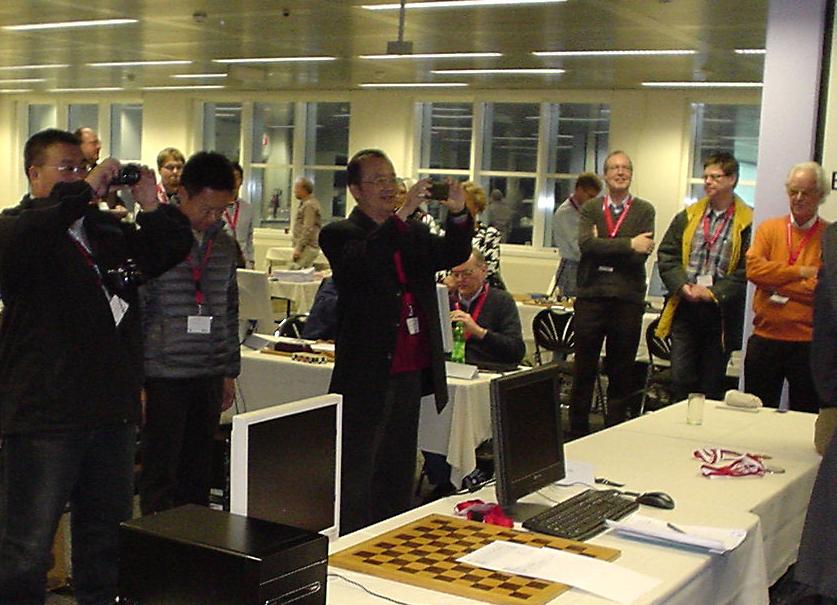
Photo shooting for the NoGo top scorers
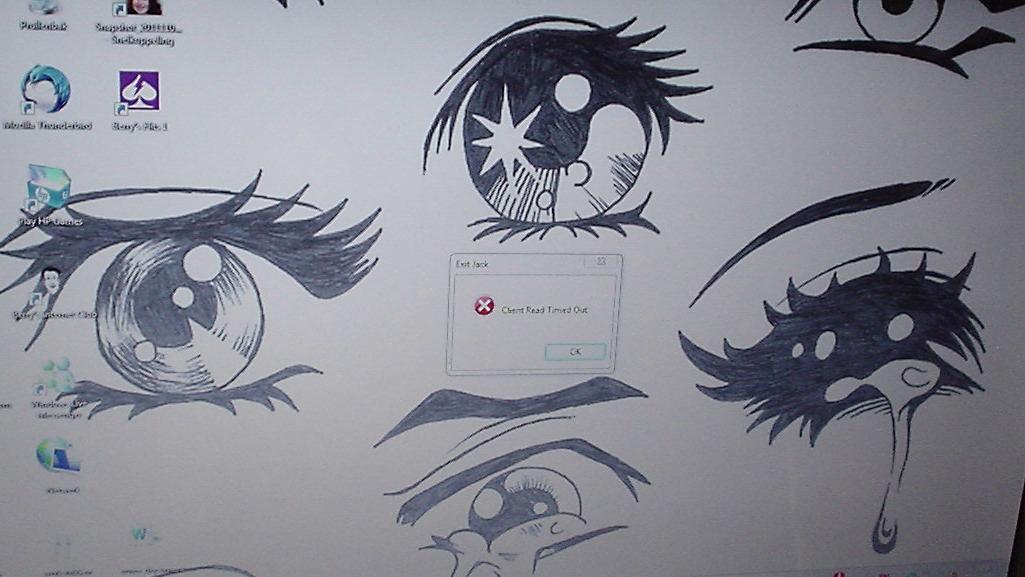
A screen saver with Go eye fantasies
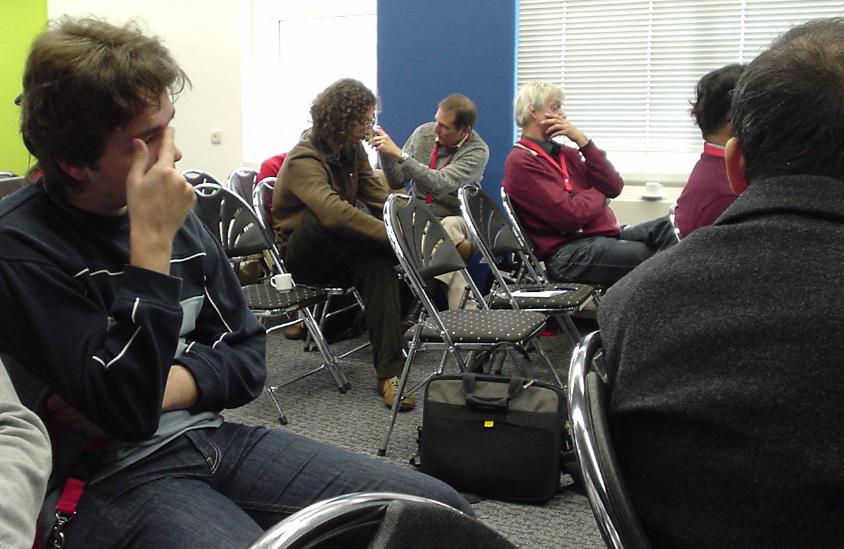
The schedule in Tilburg was so packed that some participants
became tired in between. But only for a few seconds.
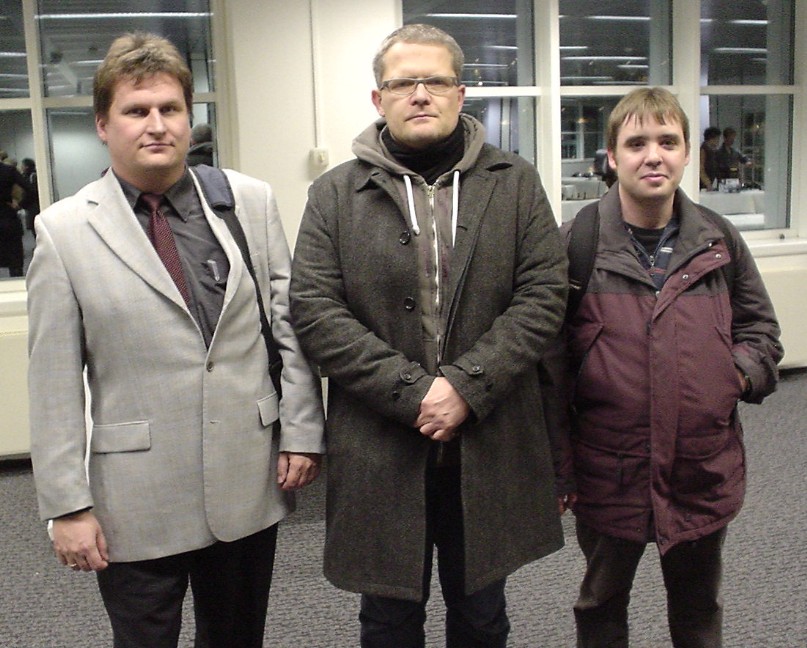
Rising computer Go stars from Siberia?
No!
Ulf Lorenz, Stefan Meyer-Kahlen and Johannes Zwanzger (from left to right)
are senior Chess programmers.
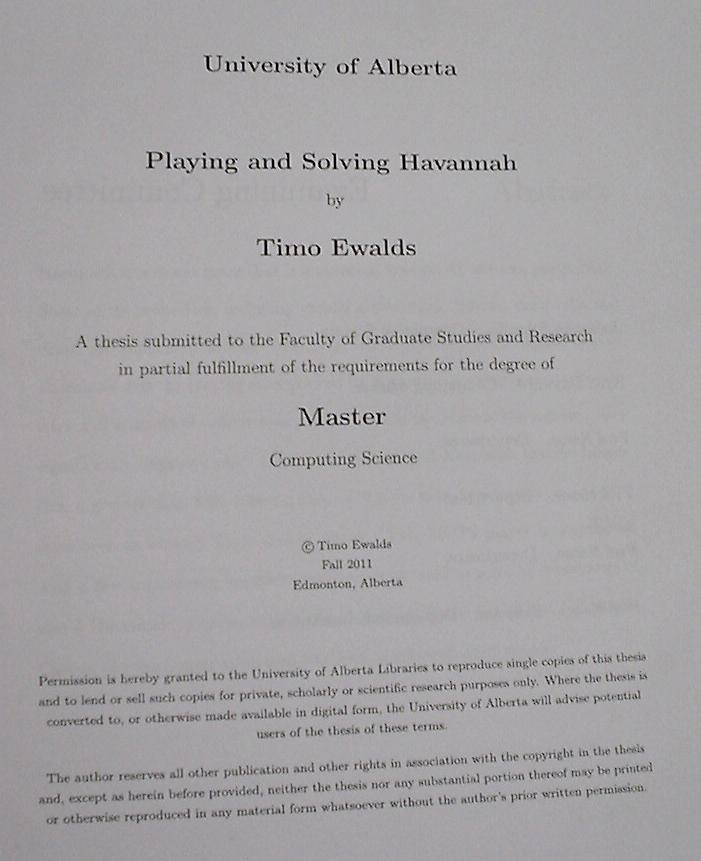
Also interesting: Cover page of Timo Ewalds' master thesis with an analysis
of the board game "Havannah".
Back to the main site of Ingo Althöfer

















